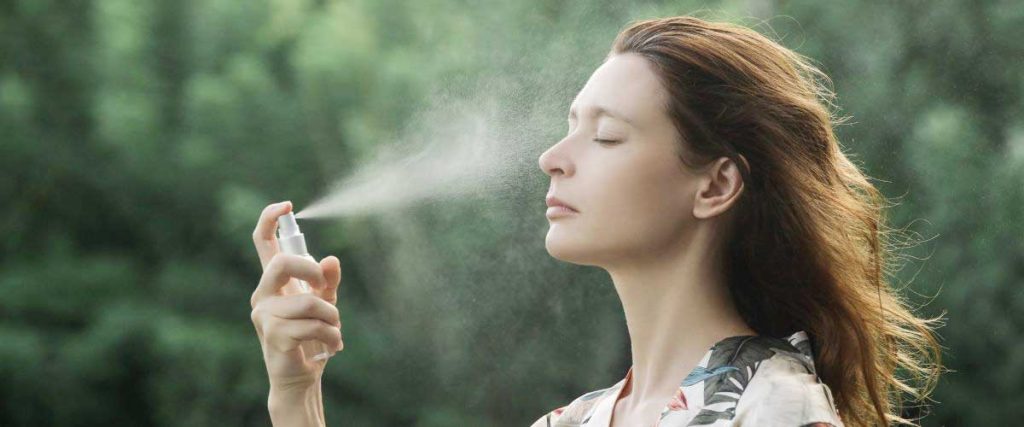Do you remember noticing a difference in your skin after traveling? Your skin’s moisture level may change with the changing seasons.
Your skin’s response to changes in humidity is what you have experienced. Continue reading to discover is humidity good for skin.
Is Humidity A Good Volume For Skin?
Your skin type is the first thing to consider when you decide if humidity will be good for your skin. Humidity, which measures the moisture level in the air, refers to when there is a lot of humidity. If you have dry skin, this can be beneficial.
However, high humidity levels can cause skin issues if your skin is in combination or oily. You can also have skin problems if the humidity is low, dehydrated ones.
How Do Humidity Levels And The Health Of Your Skin Relate To One Another?
It’s a known fact that extreme temperatures and UV radiation can cause skin damage. Recent research also looked at the impact of humidity on healthy skin and deterioration. Low humidity can cause skin irritations, dryness, and persisting skin problems.
It is possible that your skin texture changed when you traveled to a different climate. There is a high chance that you have cracks or dehydrated skin.
You might also have felt your skin feel smoother or have suddenly experienced dry and rough skin. Variable climates can have varying levels of humidity. This could cause skin issues.
Even if your stay is in one location, you may have noticed a shift in skin condition due to seasonal changes. These changes occur when the humidity level changes in response to changing seasons. These changes may cause some skin irritations, such as itching or pain.
What Is Relative Humidity?
The air’s relative humidity is the amount and type of water vapor. This is determined by the humidity the air can retain. The measurement determines the ideal humidity levels indoors and outside.
It’s beneficial in indoor humidity measurements when a humidifier is needed to balance the temperature during cooler months. If you need help with skin care, visit Skintes.
How Dryness Affects the Skin?
Low humidity can also hurt your skin. Here’s how:
Dead Skin Cell Builder
Low humidity and low moisture levels in the skin cause dead skin cells not to be shed frequently. The result is dull skin due to the accumulation of dead skin cells.
Too many dead cells can cause your skin to become dry and unable to absorb the moisture in your skincare products.
Dry Hair
When you expose your skin to low humidity levels, it becomes dehydrated.
Looks Older
When your skin is dry, wrinkles and dark circles are more noticeable. A person with dry skin may appear older.
Getting worse skin conditions
Low humidity can cause skin conditions such as eczema. Low humidity can also cause skin scaliness, redness, and itchy skin.
Humidity Effects on Your Skin
High humidity levels have many benefits for your skin. The majority are positive. You can learn more about the benefits of high humidity for your skin by reading on!
Healthy skin
Compared to dry climates, high humidity helps protect against dry and chapped skin. It keeps your skin soft and supple, as well as hydrated.
Humidity Promotes Skin Regeneration
Your skin’s ability to regenerate itself is dramatically accelerated when it is humid. This will destroy skin cells that are no longer needed and then replace them with new cells. The result is smooth, radiant skin.
Early Symptoms and Signs of Aging
Dry skin is more likely to show wrinkles, dark patches, and fine lines. Increased humidity will provide your skin with the essential moisture it needs to keep these signs from happening. There are other cons, however. A high humidity level can also cause skin problems.
Acne/Blemishes
Higher humidity levels can cause excessive sweating, further complicating the problem. Clogged pores can lead to acne, pimples, and painful bumps. Your skin is covered with heat and humidity. This causes the skin to produce more oil and clogs up the pores.
Excessive Oil Production
High humidity levels cause excessive sebum formation, making your skin appear oily and greasy.
Heat Rashes
This happens when humidity levels rise. Excessive shivering can cause the closing of sweat ducts. This can also lead to itchy bumps that can spread heat rashes. Keep reading is humidity good for skin.
How Should You Take Care of Your Skin in High Humidity Conditions?
The assumption that your skin is healthier if there’s more moisture in the air might be true. Although your skin should have a little moisture in the air, too much can lead to problems such as dry skin, allergies, and fungal infections like jock itch, athlete’s foot, or even ringworm.
If you are prone to skin conditions like those mentioned above and live in a climate with high humidity, like Florida, Louisiana, or Hawaii, consider including these steps in your daily routine.
- A dehumidifier can be used in your office or home to remove moisture.
- If your skin is oily, you can use a foaming cleanser. Foaming cleansers contain surfactants that help to eliminate excess oil.
- Use a barrier moisturizer if you are susceptible to skin allergies due to high allergen levels in humid environments.
- It would help if you showered immediately after exercising or sweating to prevent fungal infections.
Skin Care Tips for Low Humidity
These skin care tips can improve the appearance of your skin in low-humidity situations.
To moisturize your skin, use a thicker cream containing ceramides and glycerin.
A humidifier can help to add moisture to the environment and prevent skin drying.
Get plenty of water.
Follow the instructions of a professional to exfoliate your skin. This will remove dead skin cells.
Search Dermatology has the expertise to help you choose the right humidity level. For more information about humidity and your skin, contact Search Dermatology today.
Humidity Skincare Products
Here are some other products that you can use to control humidity.
Facial Spray
For humid weather, a facial mist can be a great option. It’s cooling and can help dry your skin by locking in moisture.
Hyaluronic-Acid Serum
Hyaluronic acts as a humectant. This means it pulls in moisture from the air to keep the skin hydrated. This is a great, hydrating product to use in humid climates. It does not clog pores nor add oil to the face.
Natural Skin Oils
For dry skin types, deep-nourishing natural oils such as jojoba oil and coconut oil may still be an option. They dry on your face and don’t leave a greasy aftertaste.
Face oils shine in humid regions because you may substitute your heavy winter moisturizer with a lighter-weight oil. Oil is a great way to moisturize your skin in humid heat without using creams or heavy ingredients.
What Is The Ideal Level Of Moisture For Your Skin?
To ensure the best possible relative humidity, you should invest in an air humidifier. It is suitable for your skin and overall health to maintain a relative humidity of 30-50%. You can also protect your skin by ensuring that your home has the highest moisture content.
Is Humidity Good for Skin?
You should have a little humidity.
Your skin prefers a more balanced humidity level.
High humidity may cause heat rash, acne breakouts, and excessive sweating.
According to dermatologists, a humidifier can adjust the humidity in your house.
Keep the humidity level at least 40oF, but not above 50oF to maintain a comfortable temperature.
How is Humidity Measured?
The humidity in your home can be measured using a hygrometer. This object resembles an oven thermometer in appearance. It gauges the amount of moisture in the atmosphere.
Both department & hardware stores carry them. A hygrometer ought to be included in a humidifier. This maintains the humidity at a safe level (humidistat).
Frequently Ask Questions
What Is The Best Skin Climate?
It is best to have mild weather and humidity between 30 and 50 percent.
Is Humidity Good For Acne?
A humidity range between 30 to 50% can be used to repair and moisturize skin irritated from acne. Higher levels can lead to oil control problems.
What Is The Ideal Humidity To Protect Human Skin?
The ideal humidity level can vary from person to person. It depends on age, genetics, skin type, and the environment around you. However, dermatologists suggest that the ideal humidity for human skin should be between 30 to 50%.
How many moisturizers Should You Apply To Your Skin Each Day?
There is no limit on how many times you can use the humidifier. You can use your humidifier while sleeping or during the day to reap its benefits.
How can a humidifier treat acne?
A humidifier is a device that maintains humidity between 30 and 60% to help fight bacterial infection. This will decrease bacteria’s chances to survive at these levels and may help manage acne.
Are Facial Steamers And Humidifiers The Same Thing?
No. Although both terms can be used interchangeably, there are fundamental differences between them. A facial steamer produces steam that deep cleans the pores. A humidifier adds moisture and comfort to your skin and the air in your room.
Is A Humidifier Which Mists Cool Water Preferable To One That Mists Warm Water For Your Skin?
Both cool and warm mist humidifiers will benefit your skin. Cool mist humidifiers suit homes with pets and children better, while warm mist humidifiers are quieter for winter.
Wrapping Up
You can experience various skin issues, both in high and low humidities. Most of these effects are minor and easy to avoid.
However, it is easier to protect your skin from the effects of both climate and environment if you take time to prepare.
The best products for your skin are recommended; the humidifier can be adjusted, your skin should be moisturized, and you’re ready to fight the humidity!
I hope you enjoyed this article is humidity good for skin. For more information visit Home page of the website.


